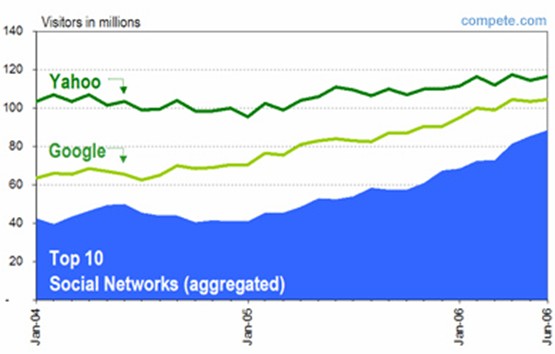Some 80% of available jobs are never advertised, and over half of all employees obtain their jobs through networking, according to BH Careers International. As a result, the most important component of a successful job search is your network, consisting of friends, family, neighbors, acquaintances, teachers, and coworkers.
Having these connections gives you valuable resources and information about specific job openings that are not publicly posted anywhere else. In general, relationships open up a world of opportunities, enjoyment, and efforts that can have a major impact on a person, company, or community.
There are many ways to gather a network, but the most common are these:
- Professional associations that have already built out a reputation, brand name, and a network of professionals that share common interests.
- Researching successful people in your related field and contacting them, asking for them to mentor you.
- Connecting with family, friends, and teachers to develop your networks through their networks.
- Active involvement in colleges, universities, sports teams, or hobbies.
- Joining social networks, which expand your networking to a global scale.
As an example of how powerful a strong network is, I will use the example of a job search after I graduated college. I applied to over 100 companies, had 40 or so interviews, but was primarily focused on EMC Corporation as my entry-level position in marketing. Through multiple interviews for positions in various marketing functions within EMC, I went through a series of 14 interviews. These interviews were behavioral tests and sometimes quite challenging.
At the time, my resume was ideal, with eight internships, all in marketing disciplines, working for companies such as LoJack, Reebok, and Lycos. The process of finally getting selected for a position at EMC took eight months, and the primary reason I finally claimed a spot was because of my unwillingness to give up.
My college friend, on the other hand, is related to the executive vice-president of human resources at EMC, and he took a position within three weeks of interviewing. A strong network enables a clear route to a position.
The Top 3 networking benefits:
- Identifies positions that are not advertised through online resources, job fairs, or classifieds.
- Accelerates the job search process, allowing for either fewer interviews or automatic acceptance.
- Brings together individuals who share common interests and competencies who can eventually open up new business opportunities
The rise of social networks
Social networks are crafted through Web sites that allow users to connect with each other by displaying photography and personal information and using a communication system, either messages or IM. Two-thirds of people online have visited a social networking site. Since January 2004, the number of people visiting or taking part in one of the top online social networks, such as Facebook or MySpace, has grown over 109%. Soon, there will be as many social network visitors as visitors to Yahoo or Google (see below).

What does this mean for you? If you don't join a social network, you will have a competitive disadvantage and lose the global reach that others will have. Social networking is deeply rooted in personal branding. Personal branding is your total perceived value, relative to competitors, as viewed by your audience. With social networking, your total perceived value is a collective sum of your profile picture and the content that you produce on the site. The audience in this case is any visitor to your social network page.
The makeup of your personal brand has four main elements: personality, appearance, competencies, and differentiation. Your total perceived value takes into account these elements and is considered to be your core message or elevator pitch to your audience.
There are two aspects to your personal brand that you need to discover, create, and maintain over time. The intangible piece is your core message, which is spoken verbally to your audience, through any type of interview or networking event, whether by phone or in person. The tangible piece is your personal branding kit, which is a combination of marketing materials, such as a Web site, video, cover letter, references document, blog, and others.
Personal branding will elevate your career
Personal branding is an important factor to consider when networking. Have you ever noticed that the materials you have produced, or the experiences you've previously had, actually surface during a networking event or an interview? If you answered yes, then you understand how important it is to have personal branding at your finger tips. Whether through a social network or a physical instance, successful personal branding will leave a lasting impression on your audience.
Use tangible aspects online
When portraying yourself online, you develop content and imagery to stimulate a reaction from an observer or viewer. This reaction will cause either an acceptance or a rejection to a possible opportunity or connection, through phone or email. You want to develop your online brand through content storytelling to make your experiences more appealing to your audience. Think about creating a Web site, with your domain name, and your resume split up into the navigational structure, so that a recruiter will get a complete picture of your qualifications electronically.
Use intangible aspects on the phone or in a physical location
Here you need to focus on telling your story—your core message—linearly. It needs to be concise and should reflect your strengths and, most importantly, your differentiation. Without that differentiation, you will not stand out and so will not be selected for a possible job opportunity.
Remember, what you do makes you who you are and how you project that to others makes you memorable!




